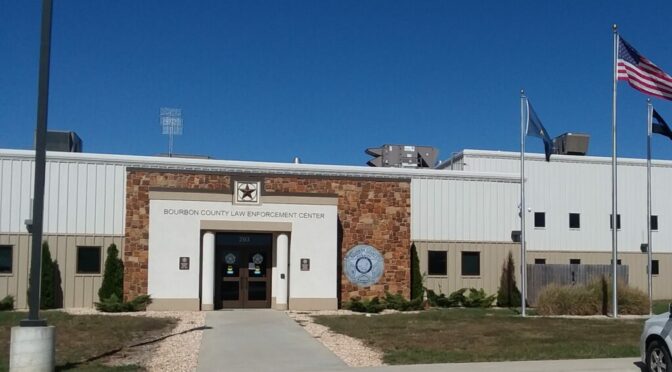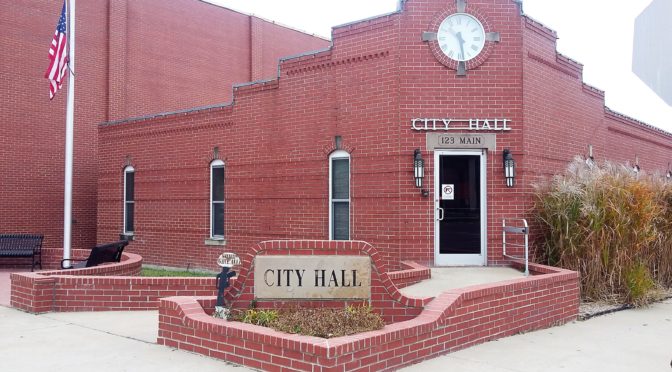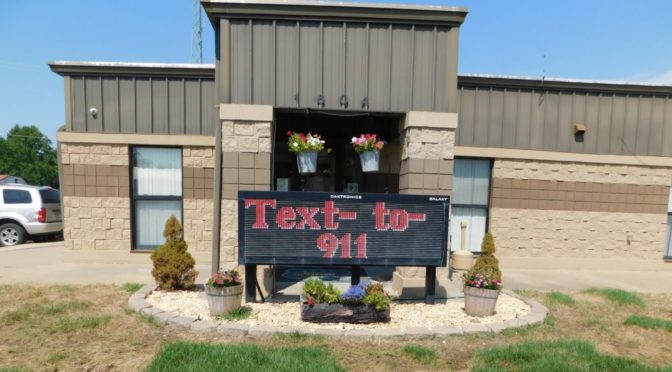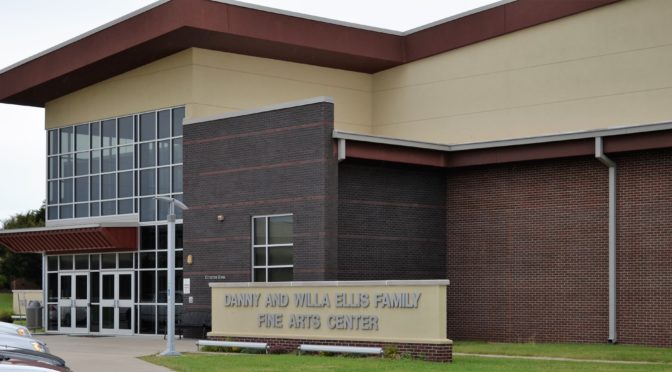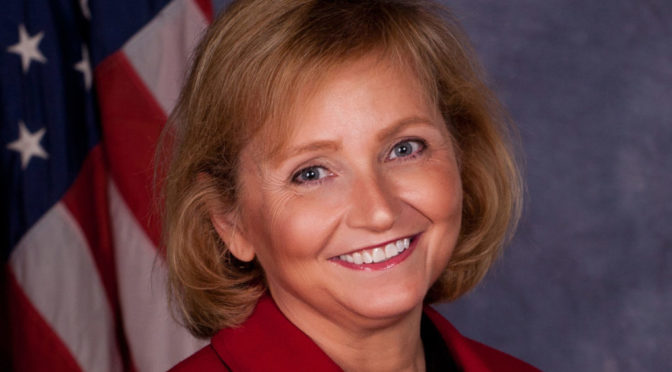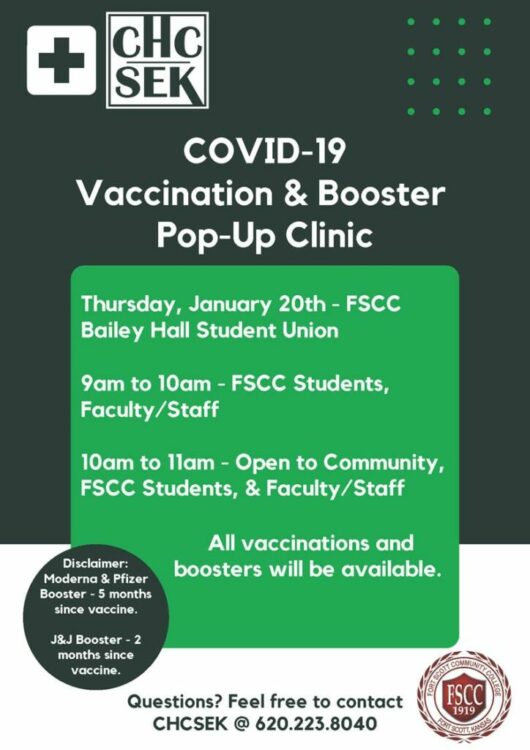All posts by Submitted Story
Senator Marshall to Hold Bourbon County Town Hall
U.S. Senator Roger Marshall, M.D., will hold a public town hall at 5:30pm CT on Monday, January 24th, at Fort Scott Community College. The public is invited to attend the town hall to learn about federal legislative issues and ask questions of the Senator. The event is open to the press.
“I look forward to the opportunity to speak with Kansans and learn more about the issues and concerns impacting their lives,” said Senator Marshall. “I value the opportunity to hear directly from folks in Bourbon County so that I can take their stories and concerns with me when I return to Washington D.C.”
Event Details:
Time: 5:30pm CT
Date: Monday, January 24th
Location: Fort Scott Community College, Ellis Fine Arts Center, 2108 S Horton St., Fort Scott, KS
FS City Meet and Greet Canceled for Tomorrow
The Meet and Greet with Kelley Zellner, City Manager, and the five (5) City Commissioners to be held on Thursday, January 20th, 2022, has been canceled.
The Bourbon County Sheriff’s Office Daily Reports Jan. 19
The Fort Scott Police Department Daily Reports Jan. 17-18
Meet the New City Manager Jan. 20
There will be a Meet and Greet event with Kelley Zellner, the new City Manager, and the five city commissioners held on Thursday, January 20th, 2022, from 5:30 p.m. to 7:00 p.m. in the lobby area of The Ellis Fine Arts Center on the campus of Fort Scott Community College, located at 2108 S. Horton Street.
Even though a majority of commissioners may be present, no city business will be conducted.
Chamber Coffee hosted by Spyder, Inc. Jan. 20

The Fort Scott Area Chamber of Commerce invites members and guests to a Chamber Coffee this Thursday, January 20th at 8 a.m. hosted by new Chamber member Spyder, Inc., located at 102 W. 2nd Street.
Coffee and light refreshments will be served.
Spyder, Inc combines their experience of solutions, compliance, and technology together to launch an eCommerce portal and document storage solution purpose-built for insurance agents and financial service providers that makes their job of selling, growing, and managing their business easier.
Spyder is a female-founded business whose leaders offer deep fintech experience, both designing software and growing companies. They are passionate about their products and what they can do for the insurance and financial service industries. Their belief is to improve the lives of their clients, their employees, and their community by serving them in the highest level of regard. Transparency, honesty, and kindness are values that they hold dear.
Join the Chamber in welcoming this new company to Fort Scott. Visit their website spyderloop.com for more information. Any member business or organization wanting to host Chamber Coffee in 2022 is encouraged to contact the Chamber to save a date by calling 620-223-3566 or emailing [email protected].
Legislative Update by State Senator Caryn Tyson
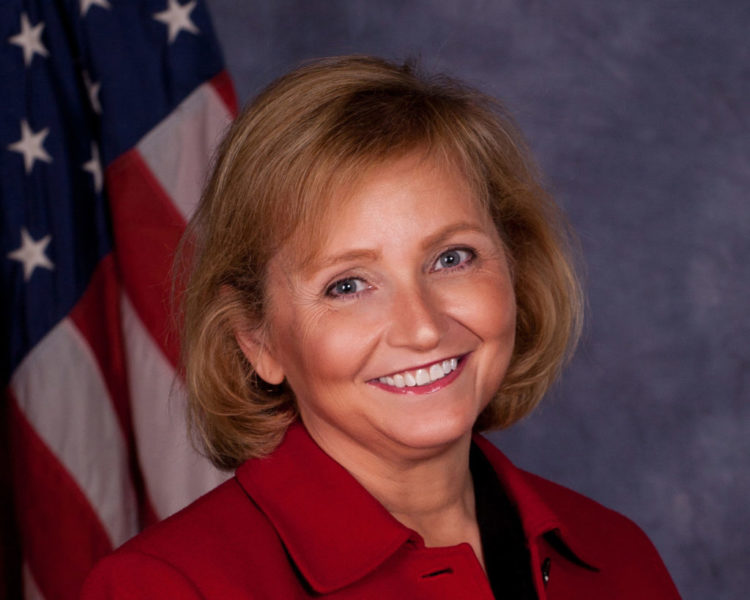
January 14, 2022
2022 Session Begins
You thought last year was a mess – well – here we go again. With the increased COVID-19 cases, variants, and major inflation, 2022 is going to be another challenge. I am confident that we can meet these challenges with perseverance and by remembering the words of our Founding Fathers, that our government is of “We the People” and that every decision we make as legislators must be in support of our Constitution.
Wildfires
December 16, 2021, several communities in Kansas were devastated by wildfires. The high winds, storms, and fires resulted in loss of life, homes, and livelihoods. There has been an outpouring of help, but more is needed. The Senate Tax Committee passed Senate Bill (SB) 318 out of committee. This Bill would allow a sales tax exemption on fencing material purchased as a result of losses from the wildfires. The legislature has passed similar legislation in the past. The difference in SB 318, is that it would not sunset so with any future fires the exemption would be available.
I offered an amendment to SB 318 that provides an option for County Commissioners to abate property taxes on agriculture or commercial property destroyed in a Governor declared disaster. It passed unanimously. Currently, County Commissioners have an option to abate property taxes on homes but they cannot abate property taxes on other property in a disaster. It was reported that a Senator was concerned about the optional abatement because it might decrease K-12 funding from the 20 mil property tax. Can you imagine losing almost all of your property and still having to pay property tax on it as if it wasn’t destroyed?
Personal Note
In less than a two-week period we lost several friends and family. Two of them died from COVID-19, but the rest died from other causes. We also have friends and family who are in the hospital and fighting to recover. It has been a difficult time, but with God’s grace we find strength.
Some media and now social media allow people to make false claims about me not taking COVID-19 seriously. This is fake news. I have and will continue to take precautions and hope that you do also. I will also continue to fight for your life, your liberty and your pursuit of happiness so that you may decide for yourself, not your government mandating and stripping you of your freedoms.
It is an honor and a privilege to serve as your 12th District State Senator.
Caryn
Critical Blood Shortage Impacting Kansas Hospitals
TOPEKA – The Kansas Department of Health and Environment (KDHE) and the Kansas Trauma Program (KTP) continue to highlight the importance of blood donation amid increasingly critical blood shortages experienced across the state and nation. Blood shortages can pose risks to hospitals in performing necessary patient care. As January is National Blood Donor month, KDHE and KTP encourage those able to schedule an appointment to donate blood. In recent weeks, the Red Cross has declared this the worst blood shortage in over a decade, with less than a one-day supply of critical blood types. The Community Blood Center for our region is at a 1-2 day supply.
“We encourage Kansans who can donate blood to schedule an appointment today,” Janet Stanek, Acting Secretary, said. “Blood donation helps ensure our hospitals can continue their operations and has the ability to save lives.”
Updated policies and practices allow for safe donation during the pandemic. Donation centers provide specific guidance on the blood donation process and safety measures taken within their centers. The National Institutes of Health have found blood donations to be safe under current COVID-19 screening guidelines.
Locations for blood donation can be found at organization websites such as savealifenow.org, AmericasBlood.org, or redcrossblood.org.
COVID-19 Vaccination and Booster Pop-Up Clinic at FSCC on Jan. 20
The Bourbon County Sheriff’s Office Daily Reports Jan. 18
KDHE Announces Changes to COVID-19 Contact Tracing
TOPEKA – The Kansas Department of Health and Environment (KDHE) today announces that as of Feb. 1, 2022, COVID-19 contact outreach and monitoring, otherwise known as contact tracing, operations will be discontinued at KDHE. KDHE contact tracing staff will be reassigned to contact investigations. County Local Health Departments have already begun to wind down contact tracing and K-12 schools who were participating in contact tracing as part of the Test to Stay program may temporarily suspend contact tracing as well. Contact tracing is when Public Health notifies close contacts to let them know that they were exposed to an infectious disease and tells them about the signs and symptoms to watch out for. Participation with contact tracing has always been voluntary. The decision to end contact outreach and monitoring was made due to the surge in amount of positive COVID-19 cases and the public’s willingness to participate has diminished since the beginning of the pandemic.
“As we enter the third year of this pandemic, public health has to begin to adjust the level of response to help alleviate the strain on the Public Health system,” Janet Stanek, Acting Secretary, said. “The pandemic is far from over, but this step is a move toward managing COVID-19 as an endemic disease. The responsibility of protecting yourself and others belongs to all of us.”
Individuals who are positive for COVID-19 will now be responsible for letting their close contacts know about their potential exposure. Additionally, if the individual with COVID-19 exposed others at high-risk settings such as schools, correctional facilities, long-term care facilities, homeless shelters, daycares and churches, KDHE or the local health department will notify the setting. The setting will be responsible for identifying close contacts and notifying them about the potential exposure.
Individuals who are positive for COVID-19 or a close contact of someone with COVID-19 can find information on what to do here.
KDHE urges Kansans to use the following tools to protect against COVID-19 and the Omicron variant.
- Get vaccinated and boosted. Vaccines remain the best tool to protect people from COVID-19, slow transmission and reduce the likelihood of new variants emerging. The authorized COVID-19 vaccines are highly effective in preventing serious illness, hospitalizations, and death. The COVID-19 vaccines approved or authorized in the United States are expected to protect against serious illness, hospitalizations, and death in people infected with the Omicron variant, especially those who have received a booster. COVID-19 vaccines are now authorized for people ages 5 and over. Moderately or severely immunocompromised people ages 5 and over should receive an additional primary dose of vaccine 28 days after their second shot. The COVID-19 booster shots are authorized for all people ages 12 and over. To find a vaccine near you, visit Vaccines.gov.
- Wear a mask. Masks offer protection against all variants. It is recommended that people in Kansas wear the most protective mask that fits well and can be worn consistently in public indoor settings, where COVID-19 transmission remains high, regardless of vaccination status. For more information, visit the CDC website, Types of Masks and Respirators.
- Get tested. If you are sick or have been in close contact with someone diagnosed with COVID-19, it is recommended that you get tested for COVID-19. Go to KnowBeforeYouGoKS.com to find a free testing location near you. If a positive result is received through an at-home test, isolate at home for at least 5 full days. If you took an at-home test and need Public Health to issue a letter stating that you are positive, you will need to follow up with a health care provider for a confirmation test.
- Stay home if exposed. If you are exposed to COVID-19 and you are not up-to-date with COVID-19 vaccinations and boosters, you should stay home and away from other people for 5 full days after your last contact with the person who has COVID-19. Anyone who is exposed, including those who are up-to-date with COVID-19 vaccinations and boosters and those who had COVID-19 within the last 90 days, should wear a well-fitted mask for 10 full days any time you are around others inside your home or in public and watch for symptoms for 10 full days. Do not go places where you are unable to wear a mask, avoid travel, and avoid people at high risk for developing severe disease. Get tested for COVID-19 at least 5 days after you last had close contact with someone with COVID-19, or get tested immediately if you develop symptoms.
- Stay home if sick. If you have symptoms of COVID-19 or have tested positive, you should stay home and isolate away from other people for at least 5 full days. You can end home isolation after 5 full days if you are fever-free for 24 hours without the use of fever-reducing medication and your symptoms are improving. If you did not have symptoms, end home isolation 5 days after your positive test. Severely ill people should isolate for at least 10 days. Take precautions for 10 days including wearing a well-fitted mask for 10 full days any time you are around others. Do not go places where you are unable to wear a mask, avoid travel, and avoid people at high risk for developing severe disease.
- Social distance and practice good hand hygiene. People should avoid large gatherings and stay at least 6 feet from others in public settings, especially if they are at higher risk of getting sick. Wash your hands often with soap and warm water or use an alcohol-based hand sanitizer.
